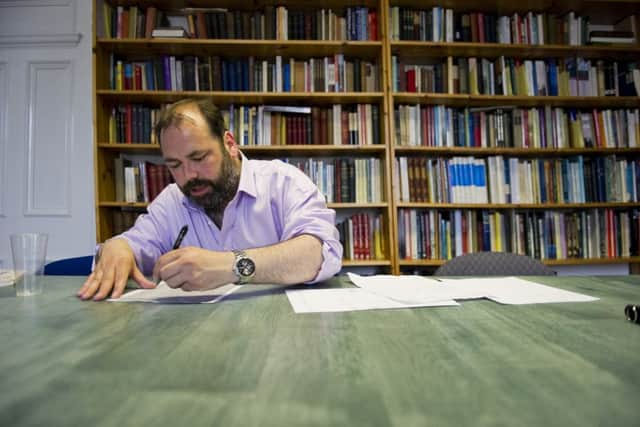Robert Burns project wins funding to '˜complete Bard's works'


The grant, from the Arts and Humanities Research Council, will fund the next five years of study, which will focus on the Bard’s correspondence as well as his poetry.
The end result will be a definitive 10 volume Oxford edition of Burns’ complete works, which academics have said will “turn a fresh page” on the life of the man regularly described as Scotland’s favourite son.
Advertisement
Hide AdAdvertisement
Hide AdThe project, which began in 2009 and is due to be completed by 2024, has already unearthed more than 20 pieces of correspondence previously unpublished and promises to shed new light on the life of the poet.


As well as three volumes of Burns’ correspondence and two of poetry, an Oxford Handbook to Robert Burns will be published, including 40 critical essays on the subject.
“For the first time, people will see both sides of his correspondence - Burns writing to people, and their replies to him,” said Professor Gerard Carruthers of the University of Glasgow, general editor of the project.
“This funding will see us through to completion, that’s what is so important about it. What the money buys is two research assistants, a large amount of web capacity , and a number of symposia, in which will we go out to Burns Clubs to share our findings and interact with the wider Burns community.”
Experts have previously spoken of a “seismic shift” in the study of Burns, which will secure his status alongside other Romantic poets such as Wordsworth and Keats.


“It will be the first really complete edition of his work,” Prof Carruthers continued.
“We have had access to something like twice the number of manuscripts, and about three times the number of printed sources, than any previous editors. Burns was last properly edited in the 1960s for his poetry, and in the 1980s for his correspondence.
Advertisement
Hide AdAdvertisement
Hide Ad“This will be the edition for the 21st century. I think it will be a long time before someone else does another complete edition - at least a century.
“We’re not so naive to say this is it, everyone can go home now. It’s never done with these things.
“But this will be the most scholarly, the most complete edition of Burns, that has ever been produced. It’s certainly something that Burns deserves, as he is Scotland’s national writer.”
Born in Alloway, South Ayrshire, in 1759, Burns grew up in poverty and had little regular schooling.
He was largely educated by his father, William, when not working on the family farm at Mount Oliphant.
Prof Carruthers added that while the story of Burns’ life is now familiar to many, the team was working to learn more about his Ayrshire dialect and the impact it had on his writing style.
“We’re going far deeper on his Scots language usage,” he said.
Advertisement
Hide AdAdvertisement
Hide Ad“There’s a lot of biographical stuff that continues to come up. For instance, we will be publishing at least two dozen new letters.
“Cumulatively, we’re talking about an edition with tens of thousands of improvements in terms of the text and information.
“We’re also reinvestigating some of his dubious work - when James Kinsley edited his Burns in 1968, he includes a section of about 30 poems that might be, but probably aren’t, by Burns.
“We’ll be losing some poems, but gaining some others. The canon, the body of work, is shifting around.
“This is turning a fresh page on Burns and throughout his songs, poems and letters.”